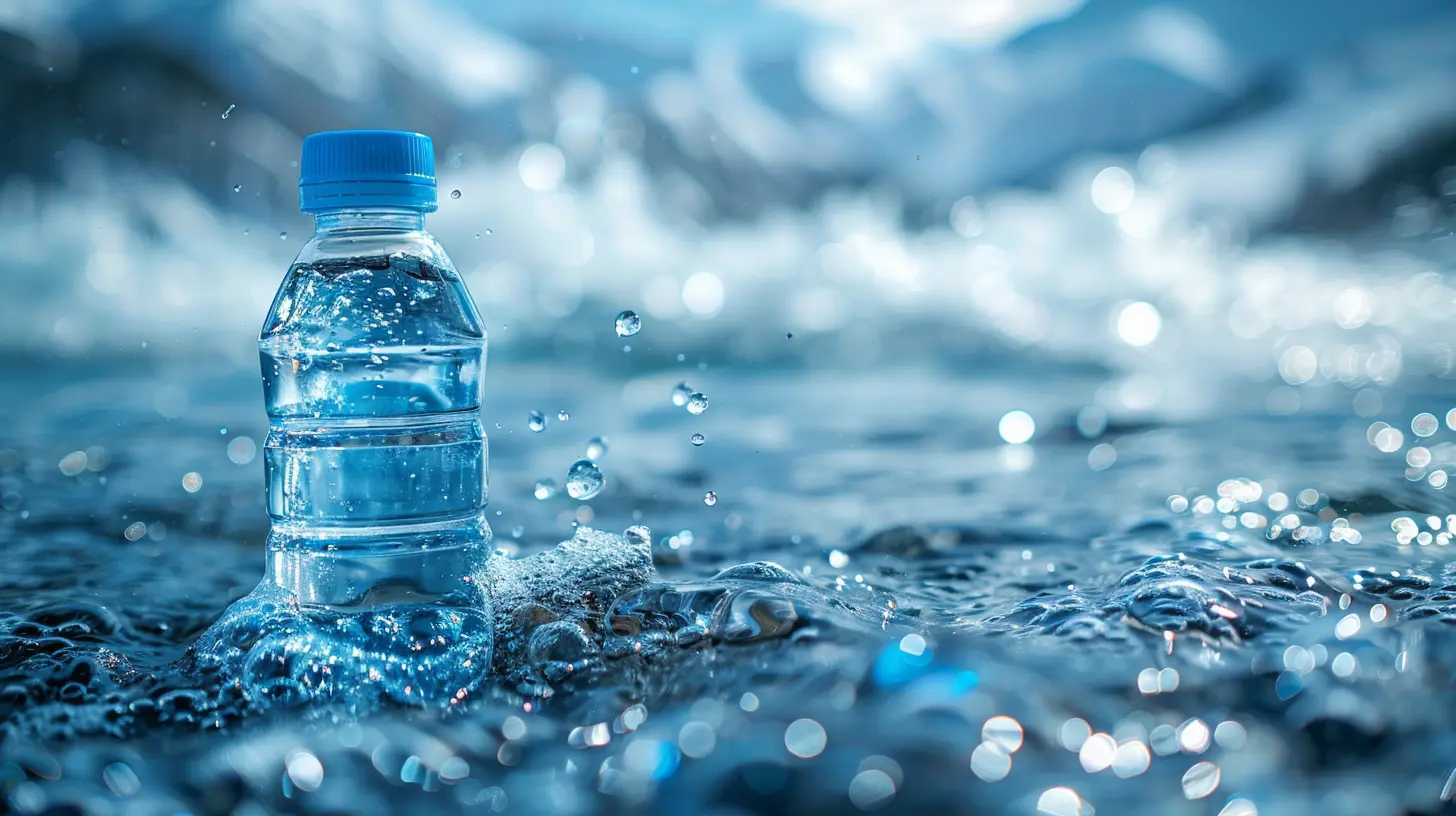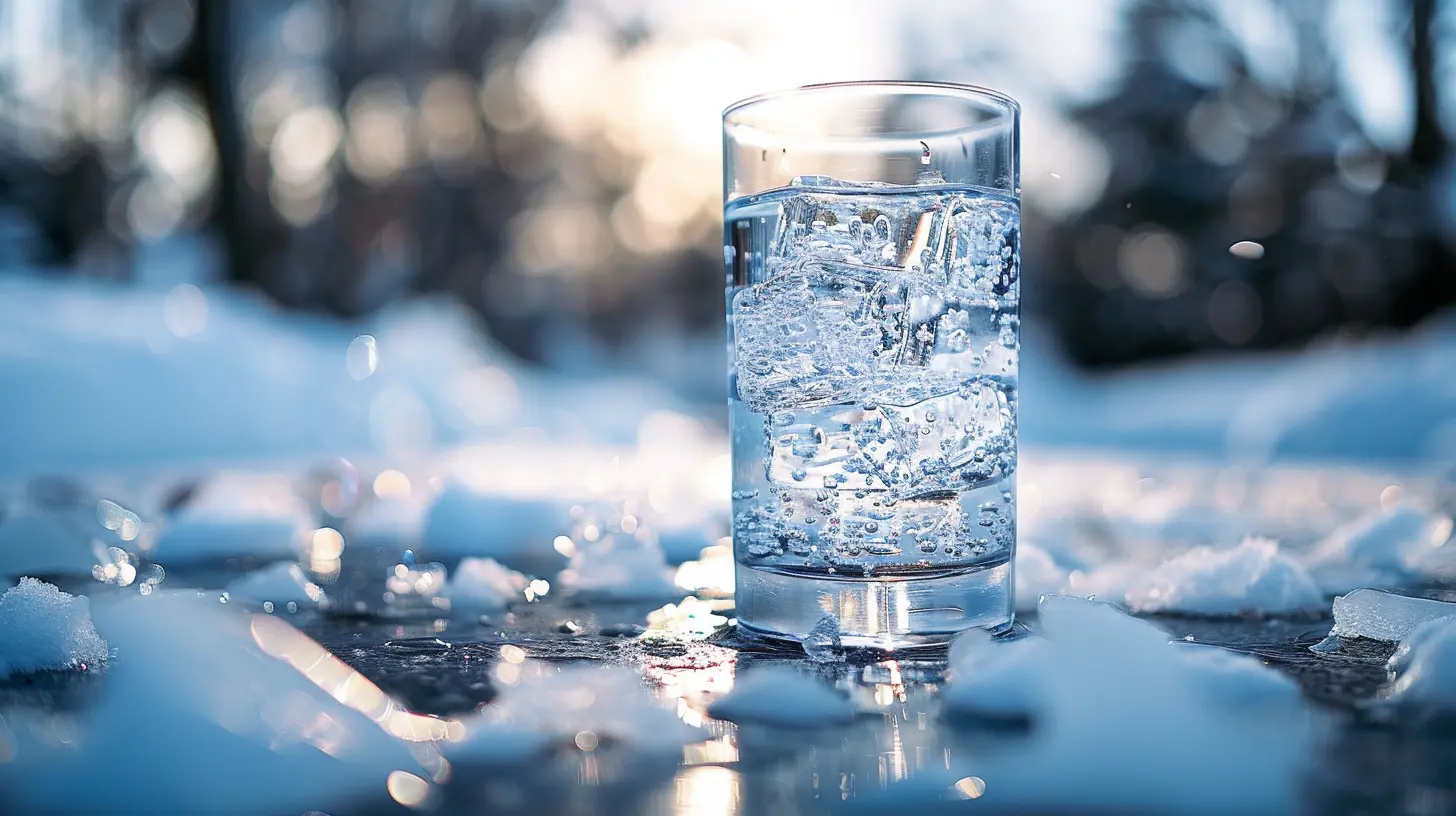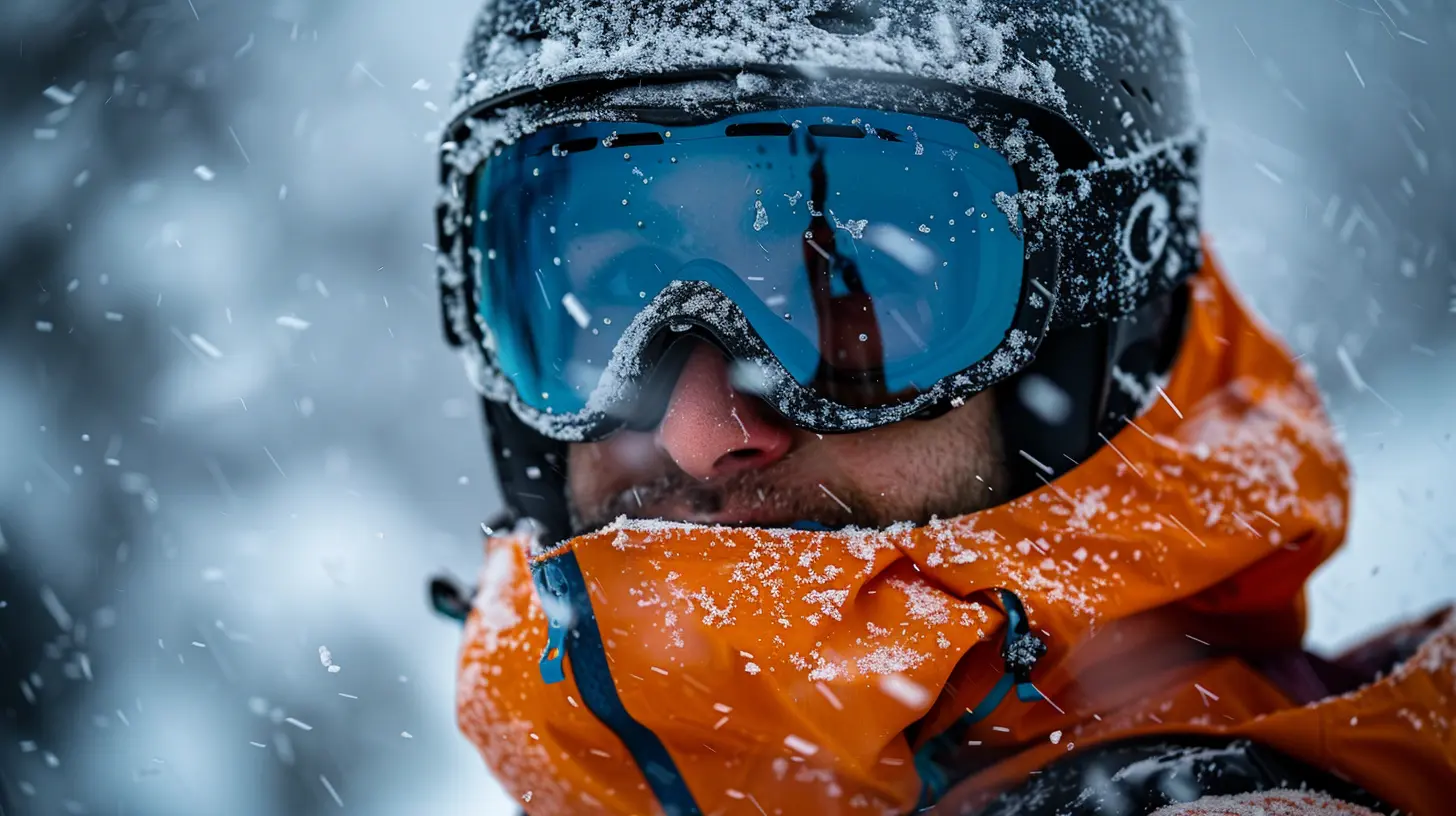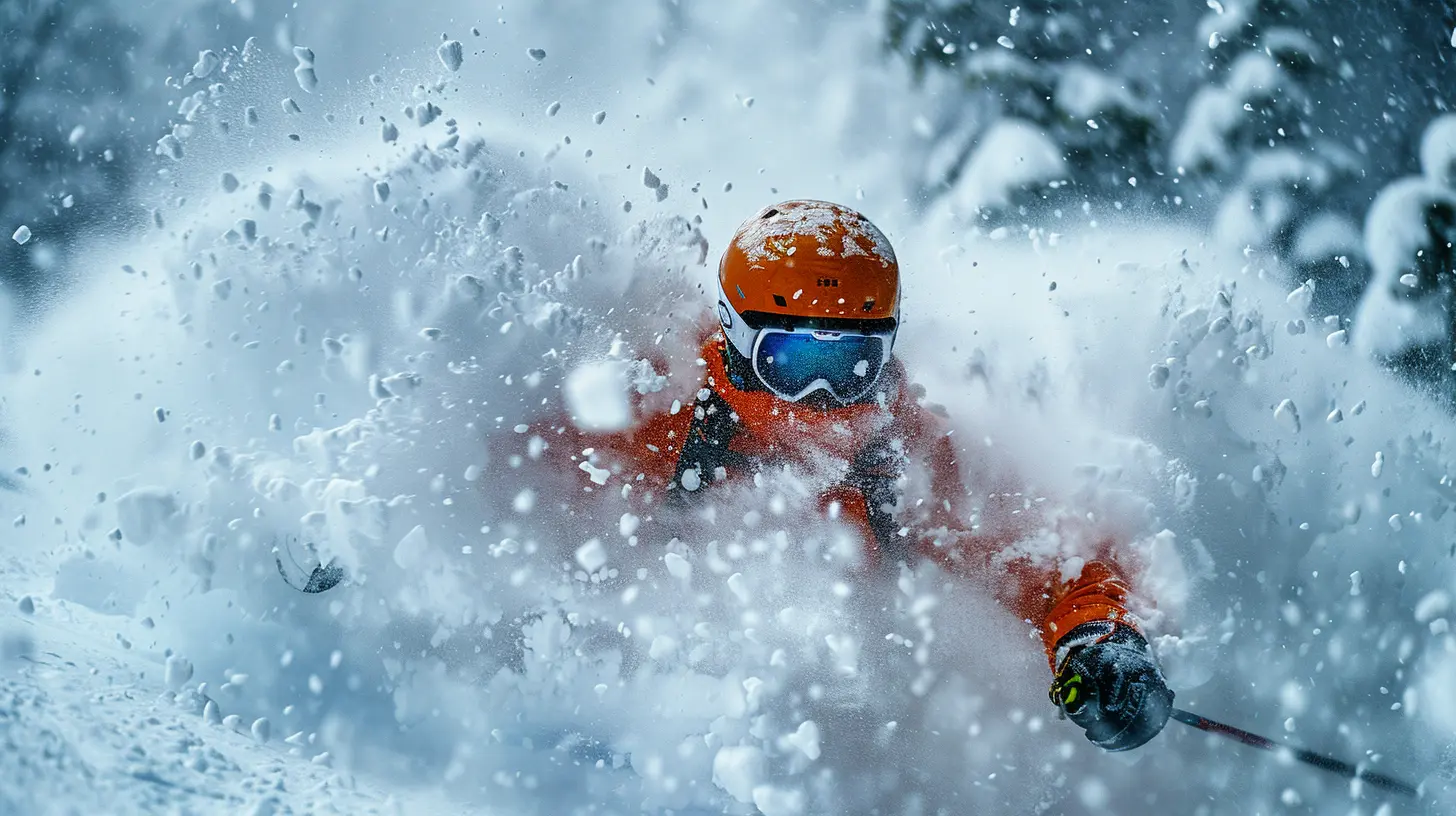The Importance of Hydration and Nutrition During a Ski Day
12 January 2025
When it comes to skiing, most people focus on the gear—getting the right jacket, boots, poles, and, of course, the skis themselves. But there’s something even more important that can make or break your day on the slopes: your body's fuel. Yep, I’m talking about hydration and nutrition. You could have the fanciest skis on the mountain, but if your body isn’t properly fueled, then all the gear in the world won’t help you.
Skiing isn't just a fun winter pastime; it’s a full-body workout that burns calories, requires focus, and demands energy. So, let’s break down why you need to pay attention to what’s going into your body before, during, and after a day on the slopes. Trust me, your performance and enjoyment will skyrocket if you do.

Why Hydration is Crucial for Skiing
Before we dive into nutrition, let’s talk about hydration. When you’re zooming down the mountain, it’s easy to forget that your body is losing water. You might not even feel thirsty because of the cold weather, but surprise, surprise—dehydration can hit you hard, even in freezing conditions.Dehydration in Cold Weather? You Bet!
Most of us associate dehydration with hot, sweaty summer days, but the truth is, it’s just as easy to get dehydrated in cold weather, especially when you're skiing. In fact, colder temperatures can trick your body into thinking you don't need as much water. You lose fluid through sweat, even if you don’t notice it, and through your breath as you huff and puff your way down the mountain.The Effects of Dehydration on Performance
Dehydration can affect your skiing performance in multiple ways. When you’re low on fluids, your muscles don’t work as efficiently. You might feel sluggish, tired, or even dizzy. Not exactly what you need when you’re trying to navigate a tricky slope or keep up with your buddies on the faster runs.Dehydration also impacts your mental clarity. Skiing requires focus and quick reflexes, especially when you're flying downhill at high speeds. If you're not properly hydrated, your reaction time might slow down, and let’s face it—on the slopes, that can be dangerous.
How Much Water Should You Drink?
So, how much should you drink? It’s the age-old question, but for skiing, a good rule of thumb is to drink small amounts of water consistently throughout the day. Don’t wait until you’re thirsty—by then, you’re already dehydrated. Aim for about half a liter to a liter of water every couple of hours. If you’re skiing all day, that amounts to about 2-3 liters.It’s a good idea to carry a hydration pack with you or throw a water bottle in your backpack. This way, you can take sips while you’re on the chairlift instead of waiting until you’re back at the lodge.

Nutrition: Fueling Your Body for Peak Performance
Hydration is only half the battle. To keep your energy levels up throughout the day, you’ve also got to feed your body the right nutrients. Skiing is a serious calorie-burner, and if you’re not eating enough or eating the wrong things, you’ll hit "the wall" earlier than you think.Pre-Ski Meal: Start Strong
The food you eat before hitting the slopes is just as important as the snacks you bring along. A good pre-ski meal should be a balance of carbohydrates, protein, and healthy fats.Why? Carbs are your body’s go-to source of energy. They’re like the firewood, keeping your internal furnace burning hot. Protein helps to repair and rebuild muscles, which is critical since skiing puts a lot of strain on your legs, core, and even upper body. Healthy fats provide long-lasting energy, which is key for endurance during those long days on the slopes.
A great breakfast before skiing might include:
- Whole grain toast with peanut butter
- Oatmeal topped with some fruit and nuts
- A smoothie with banana, spinach, and protein powder
- Eggs with avocado and whole wheat toast
Whatever you choose, make sure it’s something that will fill you up and provide sustained energy. You don’t want to feel bloated, but you also don’t want to be starving when you’re halfway down the first run.
On-The-Go Snacks: Quick Energy Boosts
Now, let’s talk about snacks. You’re going to burn a lot of calories while skiing, and you’ll need to refuel throughout the day to keep your energy levels steady. The key is bringing snacks that are portable, easy to eat, and packed with nutrients.Some great ski snacks include:
- Energy bars: Look for ones that have a good mix of carbs, protein, and fats. Avoid bars loaded with sugar—those will give you a quick energy spike followed by a crash.
- Trail mix: A handful of nuts, seeds, and dried fruit is the perfect combo of fats, fiber, and natural sugars to keep you going.
- Bananas: They’re easy to pack and provide quick-release carbs, plus a good dose of potassium to help prevent muscle cramps.
- Jerky: A high-protein snack that’s easy to throw in your pocket. Just make sure to hydrate along with it since jerky can be high in sodium.
Lunch: Refuel Midday
By lunchtime, you’ll have burned a significant amount of calories, and your body will be screaming for more fuel. This is not the time to overdo it with a greasy burger and fries. You want something that will provide energy without making you feel sluggish or bloated.Opt for something like:
- A turkey sandwich on whole grain bread with some veggies
- A grain bowl with quinoa, chicken, and roasted vegetables
- A salad with a good source of protein like grilled salmon or chicken, plus some complex carbs like sweet potatoes or farro
The idea is to get a mix of macronutrients—carbs, protein, and fat—without going overboard on the calories. You still have a few hours left in the day, and you don’t want to feel like you’re dragging yourself down the mountain.
Après-Ski: Recovery is Key
The fun doesn’t stop when the lifts close. After a long day of skiing, your body needs to recover. This is where your post-ski meal comes into play. Think of it as your body’s time to refuel, repair, and recharge.For recovery, you’ll want something that helps replenish glycogen stores (that’s your body’s energy reserve) and repairs muscle tissue. This means focusing on carbohydrates and protein.
Some solid après-ski meal options include:
- A grilled chicken wrap with veggies
- Salmon with quinoa and steamed vegetables
- A protein smoothie with some fruit and almond butter
- Pasta with a lean protein source like grilled chicken or turkey
Don’t forget to hydrate! After skiing, your body is likely still dehydrated, so keep sipping water or even an electrolyte drink to restore balance.

The Role of Electrolytes
Speaking of balance, let's talk about electrolytes. When you sweat, you lose not only water but also essential minerals like sodium, potassium, and magnesium. These are your body's electrolytes, and they help regulate muscle function, nerve signaling, and overall hydration.So, if you're skiing hard all day, it might be worth tossing an electrolyte tablet into your water bottle or drinking a sports drink. Be cautious, though, because some sports drinks are packed with sugar. Look for ones that are low in sugar but high in the necessary minerals.

Avoiding Common Pitfalls in Ski Day Nutrition
It’s easy to get caught up in the fun and excitement of a ski day and forget about proper hydration and nutrition. But if you want to perform at your best and avoid unnecessary fatigue or injury, it’s important to avoid these common pitfalls:Skipping Breakfast
You might be tempted to get an extra 30 minutes of sleep and skip breakfast, but don’t. Your body needs fuel to tackle the day, and skipping breakfast is a sure way to hit a wall early on. Even if you’re not a big breakfast person, try to eat something light but nutrient-dense.Relying on Junk Food
It can be easy to grab a candy bar or a bag of chips from the lodge, but junk food will only give you a temporary energy boost, followed by a major crash. Stick with whole, nutrient-rich foods that provide energy over the long haul.Forgetting to Hydrate
Just because it’s cold outside doesn’t mean you don’t need water. Dehydration can sneak up on you quickly, especially at high altitudes. Make it a habit to sip water with every chairlift ride or break.Final Thoughts
Skiing is an exhilarating, physically demanding sport that requires both mental and physical sharpness. To ski your best and fully enjoy your time on the mountain, you need to fuel your body with the right hydration and nutrition. Hydrate consistently, eat balanced meals, snack smartly, and don’t forget to refuel after you’re done.So, next time you’re gearing up for a day on the slopes, remember: your hydration and nutrition are just as important as your skis and goggles. Keep your body fueled, and you’ll be carving those turns like a pro all day long!
all images in this post were generated using AI tools
Category:
SkiingAuthor:

Easton Simmons
Discussion
rate this article
20 comments
Zevon Reese
Hydration: because hot cocoa can't replace water, no matter how tasty!
March 30, 2025 at 4:38 AM

Easton Simmons
Absolutely! While hot cocoa is a delicious treat, staying properly hydrated with water is essential for optimal performance and safety on the slopes.
Beth Watson
Absolutely crucial! Staying hydrated and well-nourished maximizes performance on the slopes. Remember, fueling your body not only enhances endurance but also elevates your overall experience. So, grab that water bottle and healthy snack—let's carve those runs with energy!
February 3, 2025 at 4:44 AM

Easton Simmons
Thank you for highlighting the importance of hydration and nutrition! Staying fueled truly makes a difference in our performance and enjoyment on the slopes. Let's keep those water bottles and snacks handy!
Susan Wilson
Fuel your body, conquer the slopes—hydrate and thrive on every run!
January 28, 2025 at 5:42 AM

Easton Simmons
Absolutely! Proper hydration and nutrition are key to maximizing performance and enjoyment on the slopes. Stay fueled and hydrated for the best ski experience!
Valeris Franco
Hydrate like a snowman’s dream!
January 23, 2025 at 12:43 PM

Easton Simmons
Absolutely! Staying hydrated keeps you performing at your best on the slopes!
Monique McDonough
Stay hydrated and fueled for an amazing ski adventure!
January 23, 2025 at 4:50 AM

Easton Simmons
Absolutely! Staying hydrated and properly fueled is key to enjoying an amazing ski adventure. Thanks for emphasizing that!
Lila McWhorter
Great article! Hydration and nutrition are crucial for optimal performance on the slopes. Staying fueled keeps energy levels up and helps prevent injuries. Skiers should prioritize their intake!
January 22, 2025 at 4:06 PM

Easton Simmons
Thank you! I'm glad you found the article helpful. Prioritizing hydration and nutrition is essential for a safe and enjoyable ski experience!
Mistral Gates
Hydration and nutrition: the hidden secrets behind a champion's edge on the slopes.
January 21, 2025 at 9:53 PM

Easton Simmons
Absolutely! Proper hydration and nutrition fuel performance, enhance recovery, and ensure champions can push their limits on the slopes.
Hawk Tucker
Skiing is all about carving those slopes, but don’t forget to fuel up! Stay hydrated and nourished to make every run your best. Let’s shred responsibly, friends!
January 21, 2025 at 5:44 AM

Easton Simmons
Absolutely! Staying hydrated and properly nourished is crucial for peak performance on the slopes. Let's keep our energy up and enjoy skiing safely!
Solara Wagner
Essential hydration and nutrition are critical for optimal performance and safety on the slopes—don’t overlook them during your ski day!
January 20, 2025 at 7:22 PM

Easton Simmons
Absolutely! Staying hydrated and nourished is key to maximizing your performance and ensuring a safe and enjoyable day on the slopes.
Clara Pope
Great insights on hydration's impact!
January 20, 2025 at 12:10 PM

Easton Simmons
Thank you! I'm glad you found the insights helpful for a successful ski day!
Peyton Gilbert
Who knew that the secret to shredding slopes was more about snacking than schussing? Forget your fancy gear—pack snacks like a squirrel on a mission! Hydration is key, but let’s not overlook the power of gummy bears. Fuel up, stay frosty, and ski like a boss!
January 19, 2025 at 7:51 PM

Easton Simmons
Absolutely! Proper nutrition and hydration are crucial for peak performance on the slopes. Snacks like gummy bears can provide quick energy, while staying hydrated keeps you going strong all day. Enjoy the ride!
Hawk Newman
Hydration and nutrition are crucial for optimizing performance on the slopes. Skiing demands high energy and endurance, making it essential to replenish fluids and consume nutrient-rich foods. Dehydration can lead to fatigue and decreased coordination, while proper nutrition supports stamina and recovery. Prioritizing these factors ensures a safer, more enjoyable ski experience.
January 19, 2025 at 5:11 AM

Easton Simmons
Absolutely! Proper hydration and nutrition are key to maximizing performance and enjoyment while skiing. Staying fueled and hydrated keeps energy levels high and enhances safety on the slopes.
Ardyn McKale
This article raises fascinating points about hydration and nutrition on the slopes! I'm curious—what are the top snacks recommended for quick energy boosts during ski breaks? Also, how does altitude specifically affect our hydration needs? Excited to learn more about optimizing performance while skiing!
January 18, 2025 at 9:18 PM

Easton Simmons
Thank you for your interest! For quick energy boosts, top snack recommendations include energy bars, trail mix, and dried fruit. At high altitudes, hydration needs increase due to lower humidity and higher respiration rates, so it's essential to drink more water. Stay tuned for more tips on optimizing performance while skiing!
Daria Lawson
Great article! Hydration and nutrition are often overlooked, yet they're crucial for performance and safety on the slopes. I appreciate the insights shared here—I’ll definitely keep these tips in mind for my next ski day!
January 18, 2025 at 5:04 AM

Easton Simmons
Thank you for your kind words! I'm glad you found the tips helpful—stay safe and enjoy your next ski day!
Tamsin McMahon
Great article! Staying hydrated and nourished is essential for a successful ski day. Your tips on proper hydration and nutrition will definitely help skiers enhance their performance and enjoyment on the slopes!
January 17, 2025 at 1:49 PM

Easton Simmons
Thank you! I'm glad you found the tips helpful for a better ski experience. Happy skiing!
Jocelyn Nelson
Hydration and nutrition are the lifeblood of an exhilarating ski day! Fuel your body with the right nutrients, and let every sip of water empower your performance. Stay energized and focused, carving through the slopes with confidence. Elevate your adventure—hydrate and thrive!
January 16, 2025 at 1:29 PM

Easton Simmons
Absolutely! Proper hydration and nutrition are essential for maximizing performance and enjoyment on the slopes. Fuel your body to conquer the day!
Zayla Brown
Great insights! Hydration and nutrition are crucial for performance.
January 14, 2025 at 12:33 PM

Easton Simmons
Thank you! I'm glad you found the insights valuable. Proper hydration and nutrition truly make a significant difference in performance on the slopes!
Talis Bailey
Hydrated skiers glide, dehydrated ones slide!
January 12, 2025 at 9:17 PM

Easton Simmons
Absolutely! Staying hydrated is key for optimal performance on the slopes. Cheers to smooth skiing!
Sawyer Scott
Hydration and nutrition are essential for peak performance on the slopes. Fuel your body with balanced meals and stay hydrated to enhance endurance and focus, ensuring every run is enjoyable. Prioritize your well-being for a successful ski day!
January 12, 2025 at 1:33 PM

Easton Simmons
Absolutely! Proper hydration and nutrition are crucial for maximizing performance and enjoyment on the slopes. Thanks for emphasizing this important aspect!
Ximena Coleman
Hydration and nutrition are your secret weapons on the slopes! Fuel your body with the right nutrients and stay hydrated to unleash your full potential. Embrace the exhilaration of skiing while ensuring you perform at your best. Let’s carve out an epic ski adventure!
January 12, 2025 at 3:42 AM

Easton Simmons
Absolutely! Proper hydration and nutrition are key to maximizing performance and enjoyment on the slopes. Let’s hit those trails with energy and focus!
MORE POSTS

The Masters: Predicting Who Will Wear the Coveted Green Jacket

How to Stay in Shape During the Basketball Offseason

Big Wave Surfing: The Ultimate Test of Skill and Courage

Behind the Lens: The Power of Sports Documentaries

The Best Pre-Game Rituals to Boost Your Performance

How to Stay Motivated During Off-Season Swimming Training

The Science Behind Snowboarding: Understanding Gravity, Speed, and Balance

Swimming for Beginners: Building Confidence in the Water

How to Incorporate Strength Training into Your Sports Routine

Behind the Whistle: Documentaries Highlighting Coaches Journeys

The Best Snowboarding Locations You’ve Never Heard Of

The Emotional Rollercoaster of Sports Documentaries